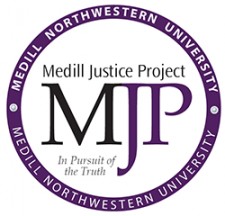Medill Justice Project Investigates 'Three-Strikes Law'

TULSA, Okla., September 19, 2016 (Newswire.com) - In a 10-week investigation, The Medill Justice Project probed the complex issues involved in the three-strikes laws that have swept the country. The story examines prison overcrowding, the costs of incarceration, prosecutors’ discretion in pursuing convictions and the case of prisoner Rodney Fisher, a Tulsa man convicted of multiple burglaries and robberies in the 1980s and sentenced under the habitual offender law to 52 years in prison.
In 2004, Fisher was found guilty of escaping from a minimum-security prison, yet again triggering the state’s habitual offender law. Typically, the sentence for a prison escape would range from two to seven years. But because Fisher had already been convicted of multiple felonies, the law allowed for the punishment to be multiplied. The range suddenly rose to six years to life.
Fisher got life.
Under Oklahoma law, those convicted of murder can serve as little as 10 years. A robbery sentence can bring less time than that. Some nonetheless say Fisher, now 52, got what he deserved. Others point to action in states that have reformed draconian sentences. In Oklahoma, leaders are beginning to grapple with the consequences of one of the highest incarceration rates in the nation and the consequences of its habitual offender law.
“The three-strikes laws raise important issues about crime and punishment in the United States that need to be addressed but offer no easy answers,” said Northwestern University Prof. Alec Klein, MJP’s director.
Three Northwestern University students at The Medill Justice Project worked in collaboration with Oklahoma Journalists for Justice, a nonprofit investigative journalism organization based in Tulsa.
The story is available at www.medilljusticeproject.org.
About The Medill Justice Project
The Medill Justice Project, founded at Northwestern University in 1999, is an award-winning national investigative journalism center that examines potentially wrongful convictions, probes national systemic criminal justice issues and conducts groundbreaking research. As journalists, MJP advocates only for the truth.
For more information:
Prof. Alec Klein, Northwestern University
Director, The Medill Justice Project
(847) 467-4476
alec-klein@northwestern.edu
Amanda Westrich
Director of operations, The Medill Justice Project
(847) 467-5307
amanda.westrich@northwestern.edu
Source: Medill Justice Project